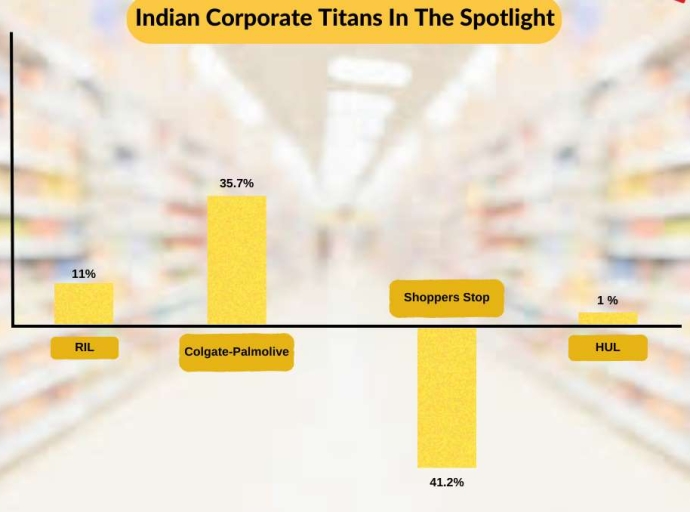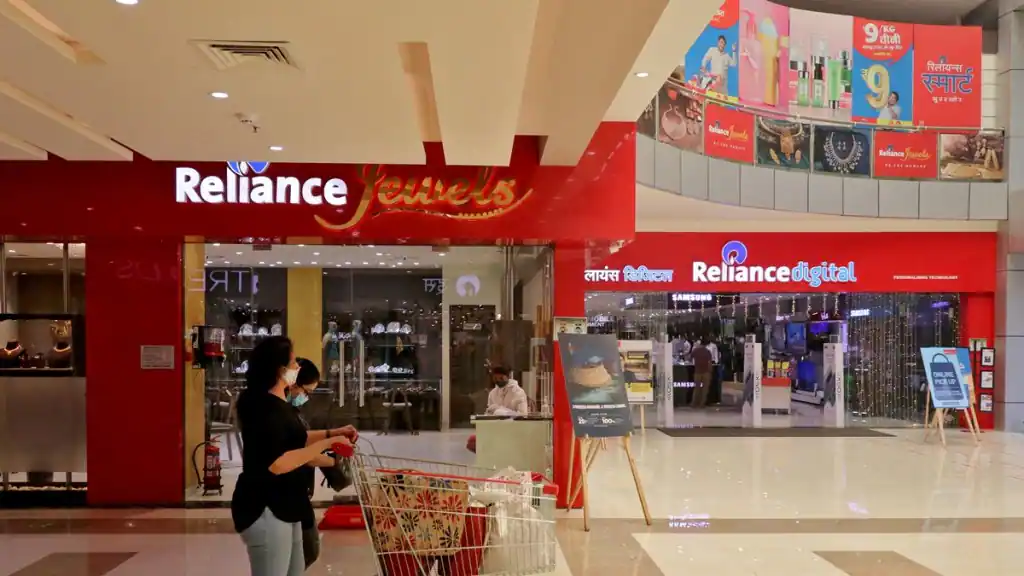23 January 2024, Mumbai
In a series of articles, DFU looks at how, over the years, India’s Large Format Retailers (LFR) have performed and are strategizing future success with new challenges and New Age consumers.
From Value King to Omnichannel Champion: Reliance Trends redefines its appeal
Forget the image of overflowing bargain bins and a discount-driven frenzy. Reliance Trends, the ubiquitous apparel giant within the Reliance Retail behemoth, is shedding its "value king" crown and weaving a new narrative—one where trend-conscious threads, seamless omnichannel experiences, and strategic expansion hold the needle.
While affordability remains a cornerstone, Trends is no longer just a destination for budget-conscious shoppers. It's redefining its appeal, catering to diverse segments, embracing digital integration, and venturing beyond metros to become a one-stop shopping champion for the evolving Indian consumer.
Here is a look at this transformation and how Trends is stitching together a future that promises convenience, variety, and value for the modern Indian shopper.
Riding on a reshaping market
The Indian apparel market is projected to reach a staggering $190 billion by 2025, and Reliance Trends is weaving itself into its very fabric. But the landscape is shifting.
Online and offline experiences are morphing into one, demanding seamless omnichannel journeys. Shoppers crave more than just clothes; they seek homewares, beauty, and more under one roof.
And beyond the familiar metros, Tier II and III cities are buzzing with rising disposable incomes, attracting retail expansion. This dynamic defines the market Trends is navigating, one where value remains king but convenience, variety, and a strategic eye beyond brick-and-mortar reign supreme.
Strategies for success
Reliance Trends isn't just a value king anymore. They're spreading out across India with over 1,400 stores with brands like Trends, Centro, and JioFashion, catering to every wallet and whim. From trendy threads in "HyperModa" to premium picks, they're stitching affordability into every segment. They're also playing tech maestro, wielding JioMart for seamless online integration, click-and-collect options, and in-store kiosks that blur the lines between physical and digital.
But Trends isn't just about clothes anymore. They're sniffing out the demand for holistic experiences, adding homewares and kidswear in select stores to become the one-stop shop for families. What’s more, Trends is venturing into Tier II & III cities, with over 1,400 outlets and tapping into the rising disposable incomes in these untapped markets.
This isn't just a retail evolution; it's a redefinition of convenience, variety, and value for the modern Indian shopper.
Financial Performance
|
Year
|
Revenue (INR Crore)
|
EBITDA (INR Crore)
|
Store Count
|
|
2021
|
8,925
|
1,182
|
1,250
|
|
2022
|
10,122
|
1,345
|
1,378
|
|
2023 (estimated)
|
11,246
|
1,510
|
1,422
|
(Source: Company annual reports, industry research)
Challenges and Opportunities
Trends' future isn't just stitched together; it's locally sourced! Think fresher fashion and lower costs, potentially giving FabIndia's sustainability focus a run for its money.
And just like Lifestyle, they are recommending trends you didn't know you needed riding on data. For JioMart, online sales are about to skyrocket with tighter integration into this retail behemoth. Trends is also going hyperlocal in Tier II & III cities, experimenting with smaller stores tailored to local tastes and needs.
Remember the "Big Diwali Bonanza"? That's Trends' value DNA on full display, attracting budget-conscious shoppers in droves. It's not just a sale, it's a glimpse into the future – one where Trends thread convenience, variety, and value into every corner of the Indian retail landscape.
Reliance Trends faces competition from online giants like Myntra and Ajio, as well as brick-and-mortar players like Max and Lifestyle. However, its extensive network, diverse brand portfolio, focus on value, and omnichannel integration offer promising opportunities for future growth.
The Bottom Line
Reliance Trends is weaving a multi-threaded narrative, moving beyond its value-focused image. By catering to diverse segments, embracing omnichannel experiences, and expanding into smaller cities, the brand is aiming to become a one-stop shopping destination for the value-conscious Indian consumer.
Whether it can claim the top spot in the increasingly competitive Indian apparel retail landscape remains to be seen, but its dynamic strategy and focus on adapting to evolving preferences are worth watching.
Latest Textile Events





































